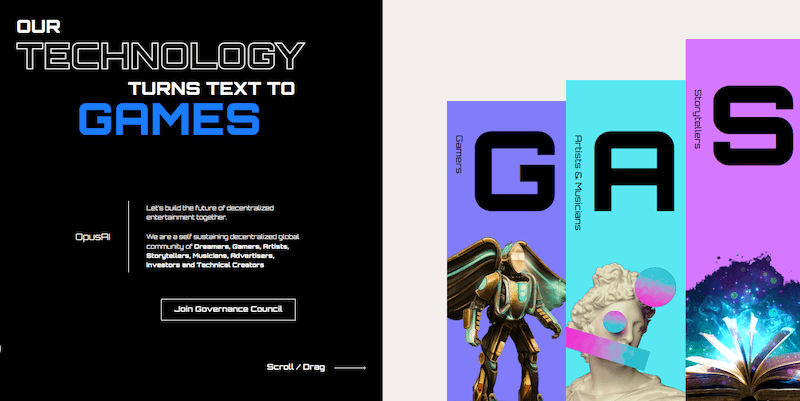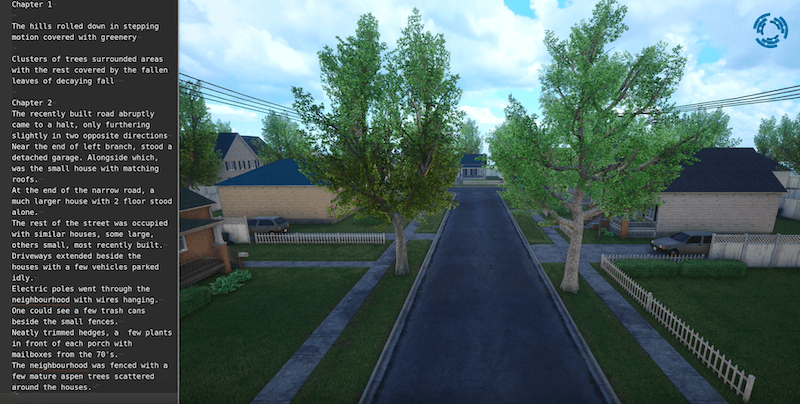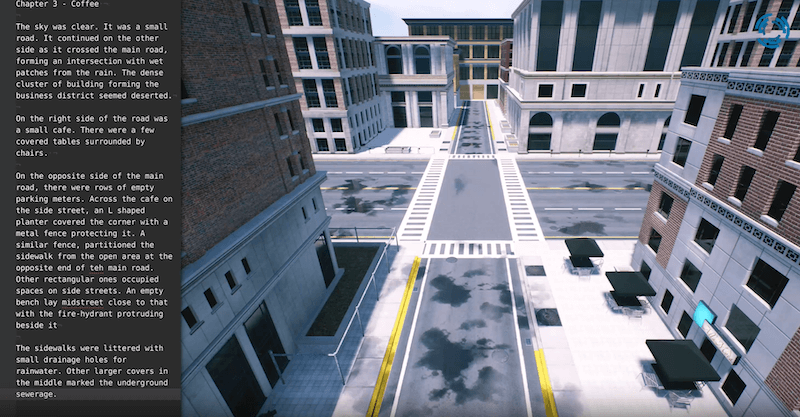The pace at which various AI tools and services are emerging is incredible, but I have to admit that I have gotten somewhat used to it. I can scroll through my Twitter feed on any day of the week and see many new AI-powered tools that have either been released recently or entered an early development phase.
With every emerging technology that enters a hype cycle, you can expect a lot of companies to enter the space and create products that might seem cool at first glance but aren't really useful nor impressive when you analyze them thoroughly. Then there are also certain products in development that can blow your mind. Today, I'm going to talk about one of those.
I don't want to make a habit out of talking about products that you can't use yet, but in the case of Opus, I felt the need to make an exception. In case you're not familiar with it, Opus is a one-of-a-king company in the entertainment sector. The team behind it is developing a text-to-video game platform powered by generative AI technology.
Create 3D Worlds With AI
I've noticed that when people first start experimenting with AI tools (especially text-to-image models like Midjourney) they usually start wondering what will be possible to generate with words in the future. I remember that I did the same.
My imagination made me envision being able to generate full 3D worlds with text prompts. What I didn't know is that this would be possible in the near future, thanks to Opus AI.

Although this AI-powered tool is not currently available to the public, you can see a demo of it on the official Opus AI website. There is an incredibly interesting video there that showcases how it works.

This is an example of what you will be able to generate with Opus AI. As you can notice, it'll take detailed descriptions of scenes to generate something that looks good. But doing this instead of designing all the elements one by one or even figuring out how to position them in a 3D environment will save you a ton of time.
Now, I don't think that this AI tool is meant to replace 3D video game designers or anything similar. Instead, it's something that should be used to quickly put together a concept you thought of. It will improve communication between designers on the same team and greatly enhance brainstorming sessions.
The fact that you can write down several sentences and generate a whole environment out of it is something that's really powerful to me. It makes me think that I'm not able to imagine some of the AI models that will be available to the public in 10-15 years.
I want to share another example of an environment that was created with Opus AI.

This time we can see an urban environment that was created with a few paragraphs of text. Seeing things like this makes me extremely excited for the day that I get to create something with Opus AI.
However, what I see here does raise a few questions that I currently can't find the answers to. I'm certain that the Opus team is working hard to deliver the product and make the whole 3D world generation process as efficient as possible for users. But I do wonder how much computing power it requires to do something like this. That also makes me think about the potential subscription price for an AI model like this.
At this point, I guess we'll just have to wait and see what type of additional information Opus AI provides us with. But since they already teased the product, I believe that they have thought about everything and have developed a way to make the whole text-to-3D environment generation process as efficient as it can be.
How the Future of Video Games Will Change With AI
Opus AI is a company that plans to change the way games are made. They want to inspire people to use their imagination to create video games without having boundaries like being skilled in design or using 3D modeling software.
Instead, they want to make creating video games something that's accessible to as many people as possible. This is not that foreign of a concept today. Roblox did it in their own way and the result was that more than 40 million games were made on their platform by regular users.
From what I can gather on the Opus AI website, the company has ambitions to gather a strong community behind it. Perhaps they were inspired by Midjourney, which has the biggest community to ever exist on Discord. Online communities are great because they enable people to draw inspiration from one another.
Community members can then take a collaborative approach and quickly learn from each other to take advantage of the technology they have at their disposal. This is one of the reasons why the average Midjourney users have gotten so good at using the model.
Apart from video games, people will also be able to use Opus AI to generate metaverses and simulations. It will be really interesting to see what type of experiences people will be able to build in the digital world when the only tool they'll have to use to construct it is language.
Final Thoughts
Opus AI is developing one of the best products I've seen since I started paying close attention to the artificial intelligence space. It's still in its very early phases of development, but the team behind the technology felt quite confident to share what they're building with the world.
I can't even imagine what it must feel like to be able to create a full 3D world with only text prompts. I look forward to the day that I start experimenting with this AI tool and build worlds that I'll share with my audience.
There are only two things that I wonder about this product. The first is how much time it will take to generate a 3D environment with text prompts when countless people across the globe are using the model at the same time. The second is what the cost for access to a model like this will be on a monthly basis.
The public release date for Opus AI has yet to be announced, but I'll be happy to wait for it as long as I have to. I just know that when it finally arrives, I'm going to be spending a lot of time using it.